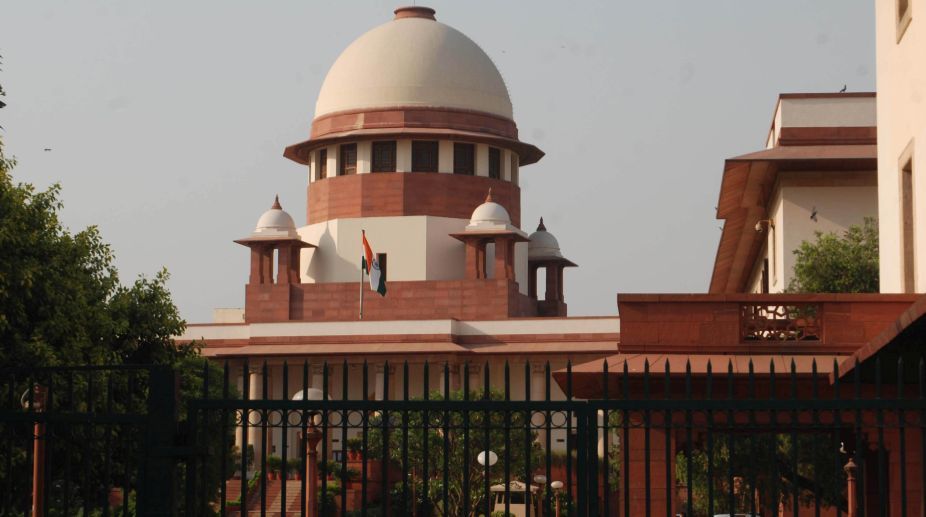SC issues notice to ED on Kejriwal’s plea against arrest, next hearing on April 29
A bench of Justices Sanjiv Khanna and Dipankar Datta issued notice to the ED seeking its response on Kejriwal's plea by April 24.

Supreme Court of India Photo: SNS
Undue accretion of assets of lawmakers was a “sure indicator” of the beginning of a failing democracy, which if left unattended, would lead to the destruction of democracy and pave way for “rule of mafia”, the Supreme Court said on Friday, 16 February.
In a landmark verdict on electoral reforms, the apex court said disproportionate assets of elected representatives was a matter which should alarm the citizens and voters of any truly democratic society and democracies with “higher levels of energy” have already taken note of this problem and addressed it.
It said that undue accumulation of wealth in the hands of any individual would not be conducive to the general welfare of the society. Besides, income of lawmakers without any known or by questionable sources, would pave the way for the rule of mafia over the rule of law.
Advertisement
“The most crude process by which a legislator or his associates could accumulate assets is by resorting to activities which constitute offences under the Prevention of Corruption Act, 1988. Gold is their God!” a bench comprising Justices J Chelameswar and S Abdul Nazeer said.
It observed that “undue accretion of assets of legislators and their associates (spouse and dependents) is certainly a matter which should alarm the citizens and voters of any truly democratic society. Such phenomenon is a sure indicator of the beginning of a failing democracy.”
“If left unattended it would inevitably lead to the destruction of democracy and pave the way for the rule of mafia,” the bench said in its verdict and directed that politicians, their spouses and dependents would now have to declare their sources of income, along with their assets, for contesting elections.
“If assets of a legislator or his/her associates increase without bearing any relationship to their known sources of income, the only logical inference that can be drawn is that there is some abuse of the legislator’s constitutional office,” it said.
The court said that “democracies with higher levels of energy have already taken note of the problem and addressed it. Unfortunately, in our country, neither the Parliament, nor the Election Commission of India paid any attention to the problem so far.”
The top court referred to Articles 38 and 39 of the Constitution which declare that the state shall direct its policy towards securing that ownership and control of material resources of the community were distributed so as to best subserve the common good and guaranteeing that the economic system does not result in concentration of wealth and means of production to the common detriment.
“In our opinion, such declarations take within their sweep the requirement of taking appropriate measures to ensure that legislators and the associates do not take undue advantage of their constitutional status afforded by the membership of the legislature enabling the legislature to have access to the power of the state,” it said.
“Accumulation of wealth in the hands of elected representatives of the people without any known or by questionable sources of income paves way for the rule of mafia substituting the rule of law,” it said.
The bench said the electoral process was the foundation of all democratic forms of government and framers of the Constitution were aware of the fact that no election process could be infallible, nor could any election be absolutely pure.
It said that “experience of the first 50 years of the functioning of democracy” in India has disclosed some undesirable trends that have crept into its working, with various bodies, including the Law Commission of India, pointing out various shortcomings in the working of democracy and the need to address those concerns.
It said that abnormal growth of assets of lawmakers or his or her spouse and dependents could be the result of activities which were improper and though they were deputed by the people to get grievances redressed, they “become the grievance”.
The top court also noted in its verdict that there were known cases of availing of huge amount of loans for allegedly commercial purposes from public financial institutions by legislators or their associates, either directly or through bodies corporate which are controlled by them, “a notorious fact in a good number of cases”.
“Such loan accounts become non-performing assets (NPAs) within the meaning of Sarfaesi Act in the hands of the financial institutions which advance loans. It is equally a widely prevalent phenomenon that borrowers (legislators or even others) whose accounts have become NPAs are able to secure fresh loans in huge amounts either from the very same or other financial institutions,” it noted.
The bench said that securing of contracts of high monetary value either from central or state governments or other bodies corporate which were controlled by the government was another activity which enables legislators, their spouses and dependents to acquire huge assets.
The court’s judgement was delivered on a petition filed by NGO, Lok Prahari, which was seeking creation of a permanent mechanism to investigate candidates whose assets have grown disproportionately during their tenure as MLAs or MPs and also a direction to the candidates contesting polls to disclose their sources of income.
Advertisement